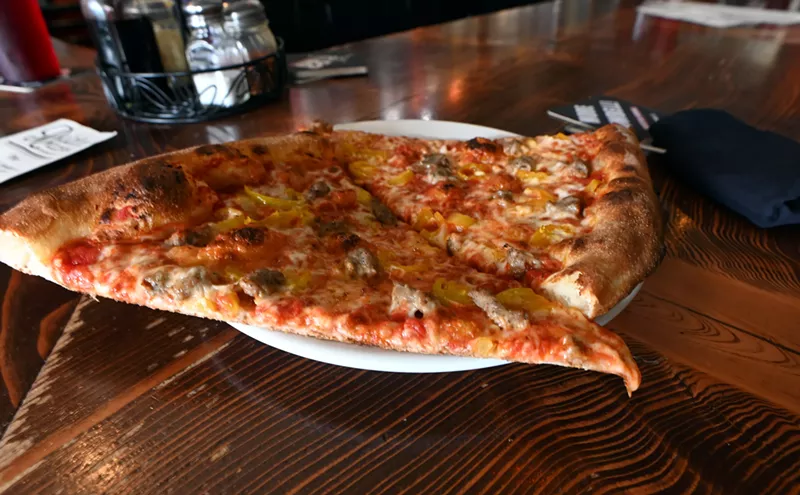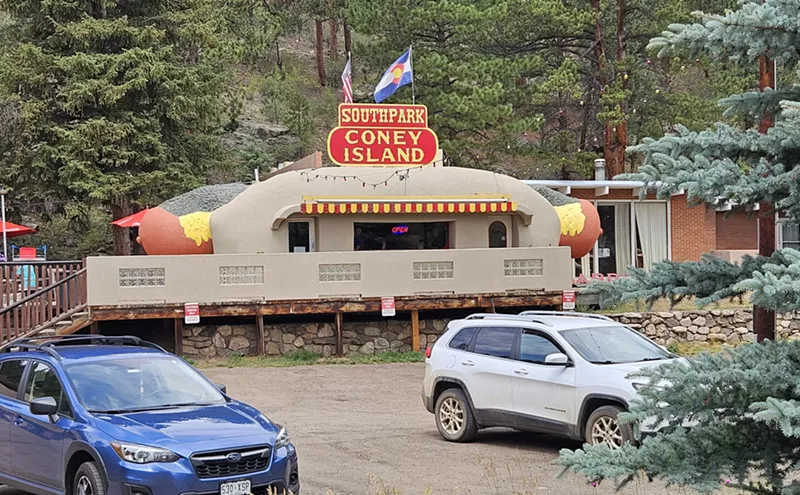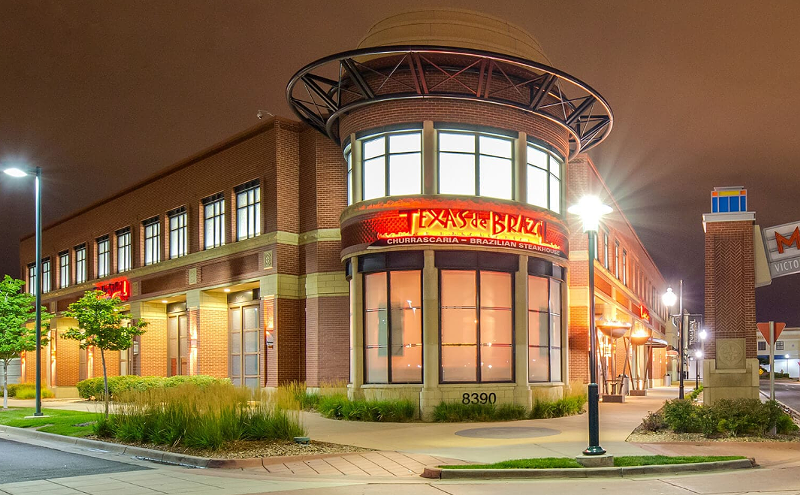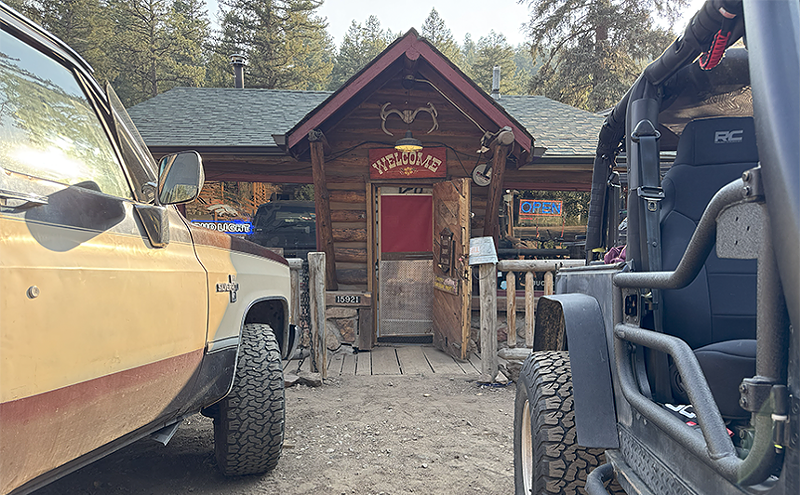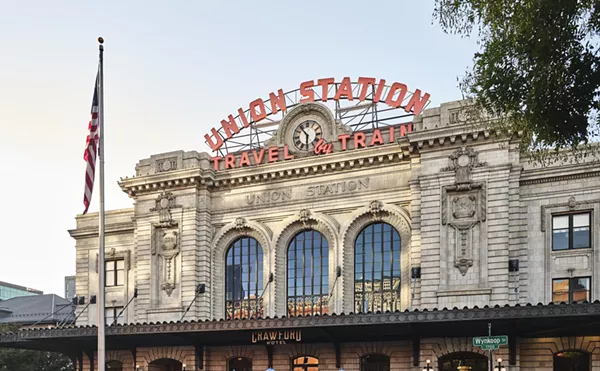Denver's largest green space touches on more than a dozen urban neighborhoods and is home to lions, elephants, bald eagles and just about every form of recreation. So it's no surprise that there are also wild yeasts floating in the air around the park and settling on everything from the trees and grass to the sidewalks, buildings and even the wolf-pack sculpture outside the Denver Museum of Nature & Science.
And that statue is one of five places in the park where museum curator Nicole Garneau, along with Denver Beer Co owners Patrick Crawford and Charlie Berger, collected yeast samples last week in order to conduct a novel brewing experiment: They hope to use the yeast to ferment a beer that could be served at the museum's next Science on Tap event.
See also: - Celebrate the Rockies and Walt Weiss by drinking a Walt Weiss at Denver Beer Co - Crooked Stave adds funk to Denver's beer culture with a barrel cellar and brewery - Mammoths and Mastodons: Titans of the Ice Age is a big, big hit
"Worst case is: we make a beer, and it tastes like crap," says Garneau, a fun-loving geneticist -- and beer drinker -- who runs the Health Sciences Department at DMNS and does public outreach with students and visitors to the museum.Actually, that's one of the best-case scenarios. The worst-case scenario is that the yeast includes some form of bacteria that makes everyone sick. To avoid that, Garneau, who has a Ph.D. in microbiology, is conducting a few experiments in the museum's lab.
After collecting samples of yeast -- which are naturally occurring living organisms -- from the sculpture, some rose petals, Ponderosa pine tree bark, Blue Spruce needles and a couple of bugs (yes, bugs), the team transferred them to a nutrient solution and then spread the mixture onto five different Petri dishes where they could grow some more. From these, individual colonies of yeast were isolated and streaked onto a final plate.
On Tuesday, Garneau isolated one yeast colony from each dish and mixed it with sterile, unfermented beer that Denver Beer Co had brought to the museum for the experiment.Unfermented beer, known as "wort," consists of malted barley that has been boiled to extract the sugar, along with hops and sometimes other ingredients. To make it alcoholic, brewers add yeast, which essentially eats the sugar and ferments the wort.
Most of the yeast strains that brewers use have been cultivated (or selected and maintained by yeast companies), and their flavor profiles are well known.
If some of the wild yeasts Garneau has in her lab -- or even just one -- are able to ferment the beer, it means they don't have bacteria in them and are safe to drink.
Once that is completed, however, she'll have to test the isolated yeast colony to make sure that it can live in alcohol. To do that, she sought the advice of another local yeast expert, Chad Yakobson, who runs the Crooked Stave brewery in Denver, which specializes in fermenting beers with proprietary wild yeast strains."He suggested we use vodka because it's high in alcohol, so if it can grow in vodka, it can grow in beer," Garneau says.
If that works, then Garneau, Crawford and Berger will need to hustle, dumping the winning yeast in more nutrient solution so that it can propagate enough of itself to be put into a small, five-gallon batch of beer that Denver Beer Co can brew on July 8 and serve at the Science on Tap event on July 22, alongside the same beer -- a traditional pale ale -- that has been fermented with two well-known brewers yeast strains.
Continue reading this story on the next page. "We'll do a taste test to see how the different yeast affects the same beer," Crawford says. "If it doesn't taste good, then at least we will have had fun and we'll know what City Park yeast tastes like. If it comes out really good, then we will brew up a big batch of it. It's all in the name of science."Garneau, who goes by the name @YoPearlSciGirl on Twitter and Facebook, met Crawford and Berger last year during preparation for another beery museum event. When they decided to reconvene this year to brew a beer for Science on Tap, Crawford suggested that they use wild yeast from City Park.
"He said, 'You're a yeast geneticist. Let's just get our own,'" Garneau says. "I told him I didn't think it would work, so now we have a bet going where we will switch jobs. If I win, I get to be a brewer for a day. If he wins, he gets to be a curator for a day."
There were no bets about the quality of the beer's taste, however, which is where Garneau thinks Crawford may have an advantage.
Brewers in Belgium have been using naturally-occurring wild yeast strains for centuries to brew Lambic-style beers, which usually have funky, sour flavors. This style of beer has recently become very popular among craft brewers in the United States. But most of these beers are brewed with "wild" yeast strains that are known quantities. In other words, the brewers are able to predict the flavors and degree of sourness.
A few brewers, however, including Yakobson of Crooked Stave, are planning to experiment with unknown wild yeast strains that exist in the air in Denver by leaving their fermentation tanks open overnight to see what gets into them spontaneously.The next beery Science on Tap, which is designed to appeal to young professionals, is set for 6 to 9 p.m. on Monday, July 22, at Denver Beer Co, 1695 Platte Street. Garneau will speak about the history of craft brewing. In addition to the beer, there will be food from Über Sausage, Basic Kneads Pizza and Peteybird Ice Cream. Tickets are $35.
Follow Westword's Beer Man on Twitter at @ColoBeerMan and on Facebook at Colo BeerMan



